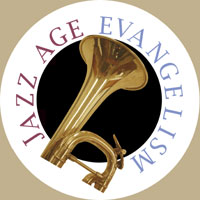

|
Read more on
|
The end of Rader's leadership of the Tabernacle came with amazing swiftness. Since 1921, Chicago businessman Albert Johnson had been a steady source of financial support to Rader, particularly from 1927 on. Johnson had acquired the property the Tabernacle stood on in order to safeguard Rader's interest in it. But like so many other businessmen, Johnson suffered severe financial setbacks due to the Great Depression. This prevented him from continuing to make the loan payments on the mortgage. In 1932 Rader signed a note taking over the interest payments on the loan. At the same time, the expenses of the radio ministry had exceeded the support money from listeners, and the Tabernacle Rader had started in Los Angeles also faced serious financial problems. Rader went to California in early 1933 to help clear the situation up there. Unfortunately, due to a judgement served against him, he was prevented from leaving the state until he paid off the debts. Meanwhile, the Chicago Tabernacle's woes increased and an auction of the furniture for debt was just narrowly averted. When Rader was able to return to Chicago in the late spring of 1933, the situation had grown so grim that he decided the only way to maintain the Tabernacle was to separate himself and the World Wide Christian Couriers from it. Clarence Ericksen, who had been filling in as pastor in Rader's absence, became the new minister. Rader left in April 1933, just a few weeks after Franklin Roosevelt promised a New Deal for the American people. Rader took most of the debts and obligations with him, and then declared the World Wide Christian Couriers bankrupt. A final settlement with lenders was not reached until 1935. Rader continued in evangelistic ministry until his death from prostate cancer in 1938. The Tabernacle continued as a traditional church until the end of the 1970s. But neither Rader nor the Tabernacle were ever again what they had been together during the nation's Jazz Age.